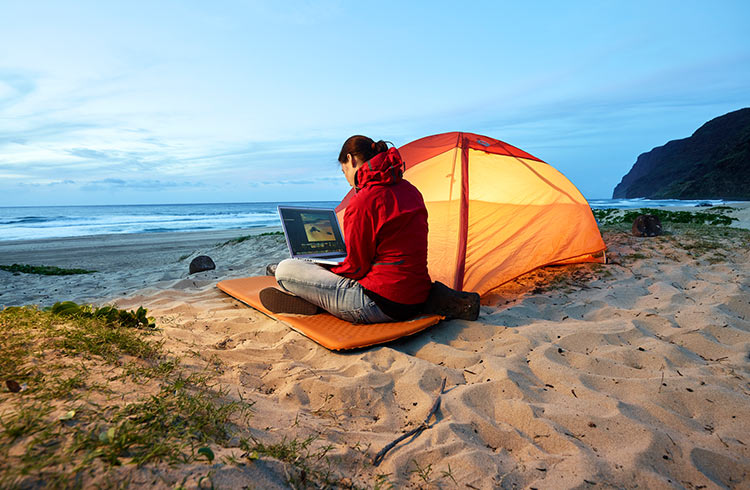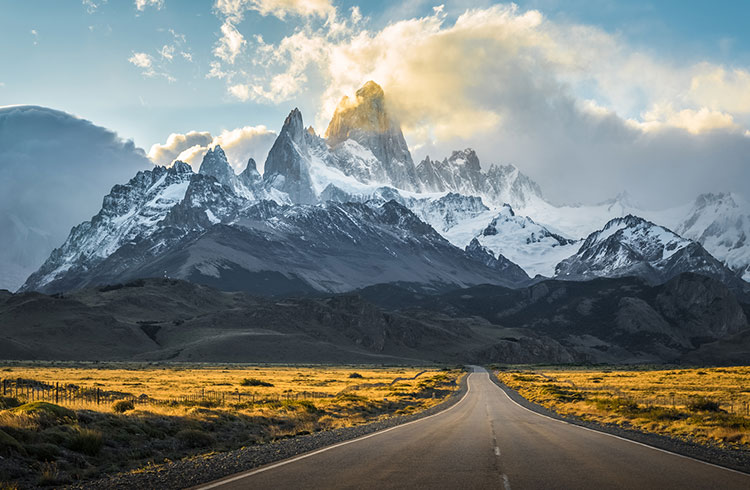Travel writing may sound like the dream job, but the business of freelancing also takes discipline and determination, advises New York Times writer Tim Neville.
Shares
 Photo © Getty Images / Westend61
Photo © Getty Images / Westend61
The first question people often want to ask travel writers is about the fun things they’ve been up to for work. The next question is generally how; how do you get so lucky to have a career like that? What does that path look like?
- Free but not free
- Go easy
- Get a job
- Gauge your responsibilities
- Stay disciplined
- Freelancing 101
- Download our How to Make a Living as a Travel Writer guide
Free but not free
Luck is always welcome, of course, especially in a career like this. Jay Heinrichs, a longtime editor at Outside and the Rodale suite of magazines, once hosted a workshop in New Mexico with a group of aspiring writers who wanted to know the steps they needed to take to become successful freelancers. His answer was disheartening but true: there is no path.
That’s precisely what makes deciding to embark on a freelance writing career such a big, scary step. While you can learn to write, you can’t really go to school to learn how to freelance, and, once you’re freelancing, you don’t get a paycheck based on the hours you work. The model is totally whacked. With freelancing, you’re trading stability for some freedom but you’re never really free. Writing is a business and that means working it and, ultimately, putting a lot of skin in the game.
Go easy
Of all the ways to go down this no-one-path path, quitting your day job that keeps the family afloat to “give freelancing a whirl” is probably not the best way to do it. Neither is saving up a cushion of money to live off of while you try. With both, you’re exposing yourself to too much do-or-die risk that will potentially ruin your financial health at worst or leave you suffering through a lot of sleepless nights at best. Play it smart and ease into the game.
That can mean a lot of different things but primarily it all boils down to having a steady income on the side that the freelancing work can supplement. Ideally, you want to build up your freelancing work to the point where the real job has to go. It sounds easy and obvious until you try it. Having a “real” job naturally means having to stick to a schedule, which makes jetting off on assignment tricky. So start small. Pitch the service ideas and interviews you can do from home or be willing to take vacation time to work on your freelancing. Combining holiday time with freelancing can be ideal if your travel companions don’t mind you doing a little work along the way. Keep track of your receipts too. If you do end up selling a story, you may be able to write off part of the profit come tax time.
Get a job
Frankly, the best job to have when building up to a freelance travel writing career is one where you get to work with freelance travel writers. Interning at a magazine, a newspaper or a website, even at a brand or destination marketing organization that’s hungry for content, will let you see how the game is played from the inside. Any income helps so don’t feel like you have to embark on this massive career change overnight. Test the waters a bit first.
Gauge your responsibilities
There’s no getting around the fact that this all goes down a bit more easily when you’re young with fewer responsibilities. At 29, when I first started freelancing full-time, one $500 assignment from Backpacker meant I could pay rent, eat, and put gas in my car for the next month. My business met my needs, which grew, which meant the business had to grow, too. But if you start out when you’re older, and more settled in another career, don’t shut all the doors on your freelance dreams either. It just means you’ll have to plot your move methodically since chances are good you’ll be making less writing than what you’re making at your real job. If this is you, the best career may be the one that allows you some flexibility to freelance here and there but not full time.
Stay disciplined
No matter your approach, the pitfalls are real. It takes some real discipline to get enough assignments together each month to survive and even more discipline to manage your cash flow through the feast-or-famine nature of the beast. In the end, though, you should always be focused on improving your writing and that means writing a lot.
Start a blog, write for a blog, fill up a journal if you must. Books like Welcome to the Writer’s Life by Paulette Perhach (Sasquatch Books, 2018), can offer great practical advice to keep the words coming. Without those, you’ve got nothing to sell.
Freelancing 101
Freelancing can feel like you’re only as good as your last job, and in some ways you are. Don’t ever take any assignment for granted and always strive to be easy to work with: hit your deadlines, follow instructions and rewrite graciously. Editors won’t forget the time you bombed but they remember when you deliver, too. Keep the momentum going by pitching good ideas immediately after handing in good work.
Download our How to Make a Living as a Travel Writer guide

Related articles
Simple and flexible travel insurance
You can buy at home or while traveling, and claim online from anywhere in the world. With 150+ adventure activities covered and 24/7 emergency assistance.
Get a quote


4 Comments
You forgot "Have parents who can fund both your travel and your writing"
Just gotta say, y'all... after retirement can be an exciting time to pivot and go for the joy of that long-held travel writing dream. Now in my 60's I travel, interview fascinating folks, learn tons about lesser-known destinations, and keep learning. Listening and learning is a huge key. Listen for the story behind the story and learn so much new technology that it boggles the mind.
YOU do you...at your own age...at your own pace...you can figure out what's right for you.
I just spent nine months at a hostel in Kigali, Rwanda. I was the only white person there, and feel the whole stay was a complete privilege. I’m 89 years old, a retired teacher and addicted traveler, and have been a budget traveler all my life. I went to Rwanda intending a one month stay, but got caught by the Covid19 lockdown, and decided to stay even after the airport opened again. So glad I did!!!!
Carolyn and Angela you are my kind of women! I am in my 60's, have traveled the world on a budget and am a writer but stick to other topics. I do not dare to try to break into travel writing,I get the impression that it is so much geared toward a young audience.
I wonder if there are any sites that are more sympathetic to older travelers. Any suggestions?